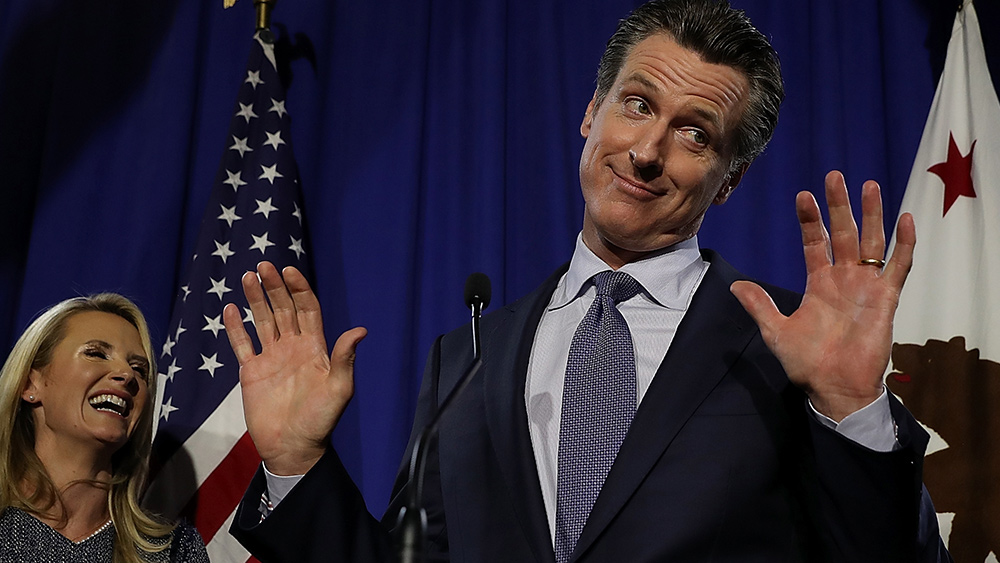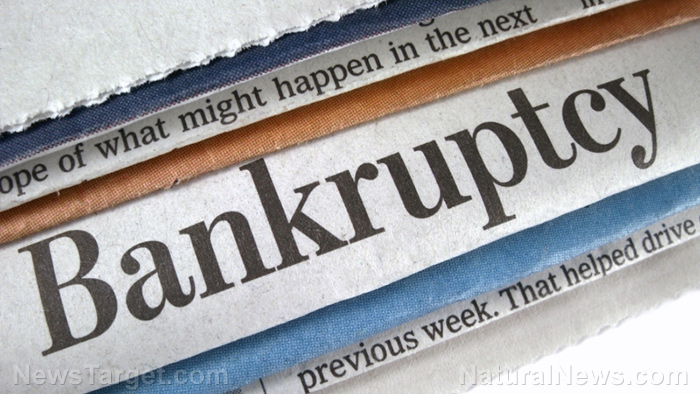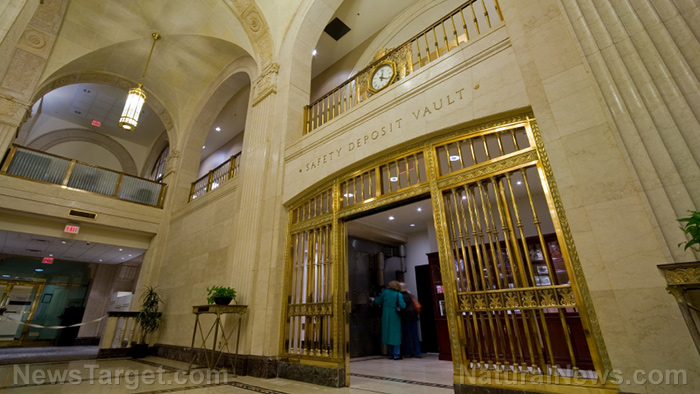Banks increasingly discriminating against customers based on their political views
08/15/2023 / By Ethan Huff

We are beginning to see the cancel culture trend hit the banking industry as the finance cartels set their sights on punishing customers deemed guilty of wrongspeak and wrongthink.
The high-profile case of British politician Nigel Farage is a case in point. Farage, who was friendly to Donald Trump and opposes transgender ideology, used to bank at Coutts, a bank that caters to wealthy clients.
Coutts shut down Farage’s account, claiming he did not have enough money in it to keep it active. That excuse turned out to be false. Coutts discriminated against Farage because he is probably more responsible than any other politician for the 2016 vote to have the United Kingdom leave the European Union (EU), among other politically correct moves.
“Like most public figures with strong opinions and a strong personality, Mr. Farage is both widely admired and widely detested,” one report explains. “If you ask someone about him, he’s unlikely to answer, ‘On the one hand, on the other …”
(Related: The IMF is hinting that countries of the world will soon be able to repay debt using the Chinese yuan rather than the U.S. dollar.)
Oppose the globalists, lose your ability to bank
As far as we can tell, Farage has not committed any crimes. Coutts admits that in its past dealings with Farage, he was always friendly, polite, and correct. It appears, based on what has been publicly released, that the only reason Farage’s account was closed is because of his political leanings.
Farage commented that the documents he received from Coutts about his account closure read like something from Stasi headquarters. A portion of them reads as follows:
“Given [Nigel Farage’s] high profile and the substantial amount of adverse press connected to him, there are significant reputational risks to the bank in being associated with him. While it is accepted that no criminal convictions have resulted, commentary and behaviours that do not align with the bank’s purpose and values have been demonstrated … The comments / articles [on ESG / diversity and inclusion] are not in line with our views or our purpose.”
Another document quoted by The Guardian outlines the many moves Farage has taken in recent years that put him in the crosshairs of Coutts’ compliance team, as well as that of the left-leaning media, which likewise hates what Farage has done and what he stands for:
“First it was Brexit, followed by a spurt of very successful campaigning to ensure that Britain left Europe on the most stringent and self-harming terms. For a while, Nigel Farage then opposed Covid restrictions. Now, he is reviving his old hostility to action on the climate emergency.”
There are some 40 pages’ worth of documents about Farage’s infringing behavior and stances that led to his being let go as a client of Coutts – and yet not a word about any actual illegal behavior that validates his removal from the bank’s account roster.
“It isn’t a question of whether Mr. Farage is always right or sometimes horribly wrong; when the bank says that it ‘uncovered’ something that he said, as if he had recorded saying it by secret microphones, it makes itself ridiculous,” wrote Theodore Dalrymple in an op-ed for The Epoch Times.
“Not even his worst enemies, or perhaps his best friends, would accuse him of hiding his light under a bushel.”
Coutts, like many other banks, also embraces LGBT perversion, and since Farage is not about all that pride, this is likely another reason he was kicked out of the bank. The pride patrol is likely to start trying the same thing at other banks, so beware.
The latest news about the crumbling global financial system can be found at Collapse.news.
Sources for this article include:
Submit a correction >>
Tagged Under:
banking, banks, bias, cancel culture, collapse, Coutts, crybullies, discrimination, finance, gay mafia, globalism, identity politics, intolerance, left cult, money, money supply, NatWest, nigel farage, outrage, politics, resist, rigged
This article may contain statements that reflect the opinion of the author
RECENT NEWS & ARTICLES
COPYRIGHT © 2022 FinanceRiot.com
All content posted on this site is protected under Free Speech. FinanceRiot.com is not responsible for content written by contributing authors. The information on this site is provided for educational and entertainment purposes only. It is not intended as a substitute for professional advice of any kind. FinanceRiot.com assumes no responsibility for the use or misuse of this material. All trademarks, registered trademarks and service marks mentioned on this site are the property of their respective owners.



















